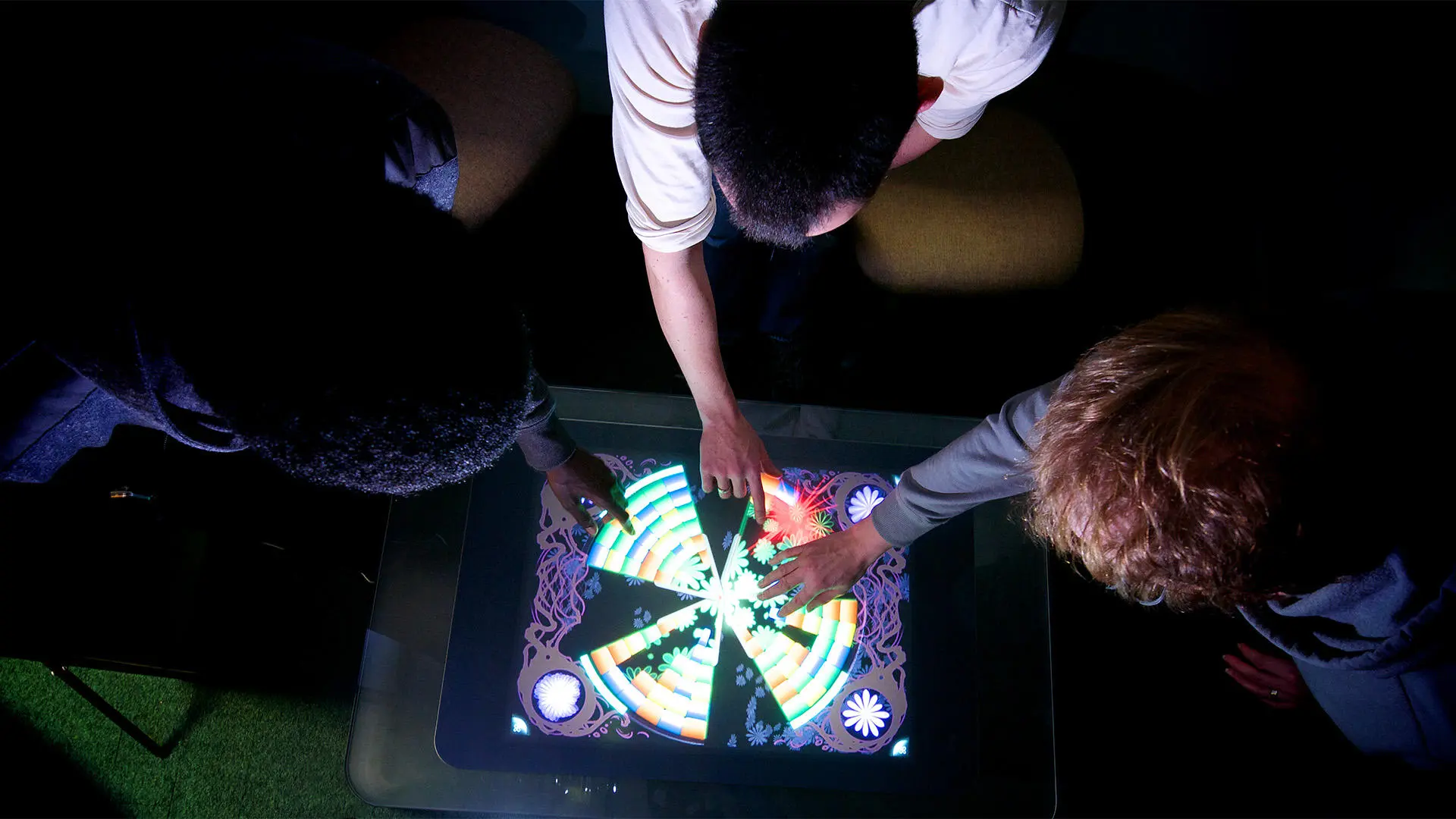Our institute has three main aims:
-
To communicate the possibilities of digital technology. We carry out public engagement work, outreach work, and educational work with a series of installations in public spaces. We also deliver activities for schools and related institutions, with webinars and seminars for academic audiences.
-
To create physical and online spaces that enable multidisciplinary and interdisciplinary collaborations. We focus on digital technologies and solutions, using the Imaginarium lab as a focal point for innovation and inspiration.
-
To innovate with new digital technologies, new methods for creating technology solutions, and new technology solutions. We aim to improve the overall wellbeing of humans through improved safety, greater access to the arts and humanities, and healthier lifestyles.
